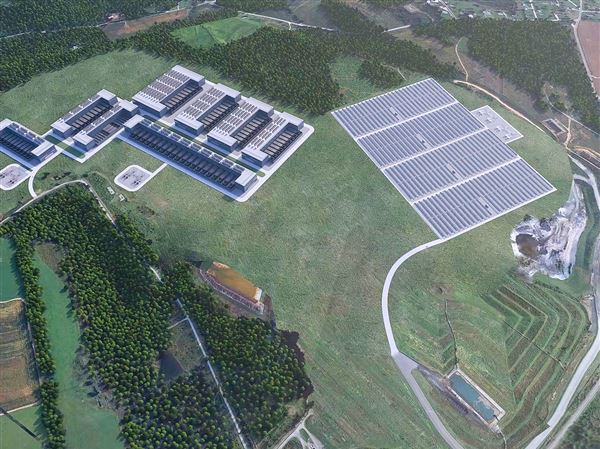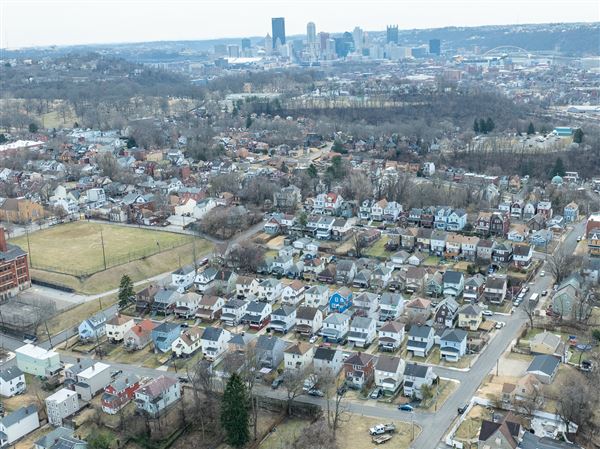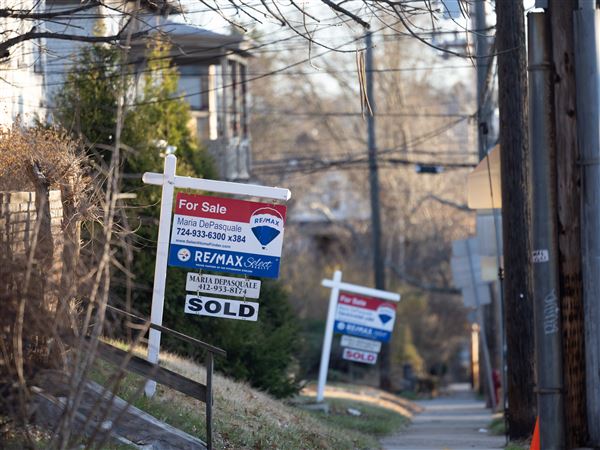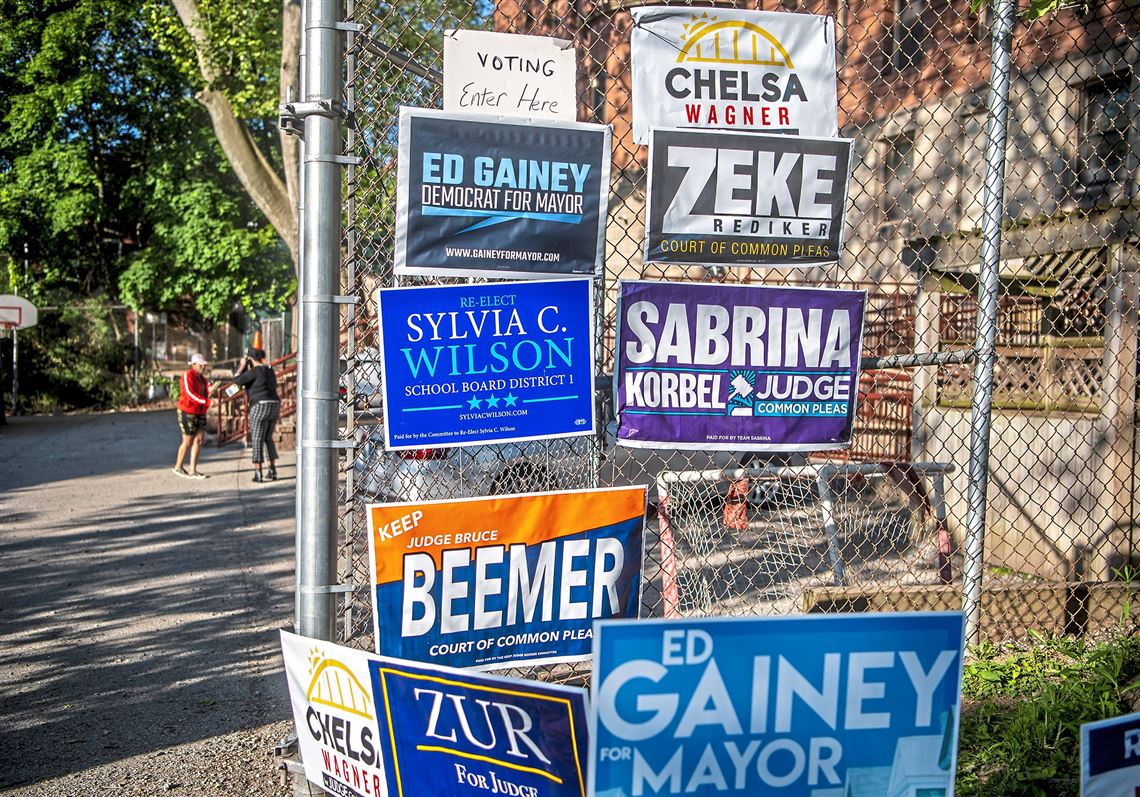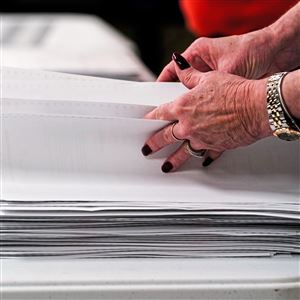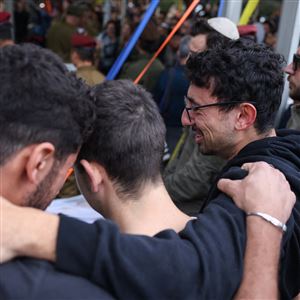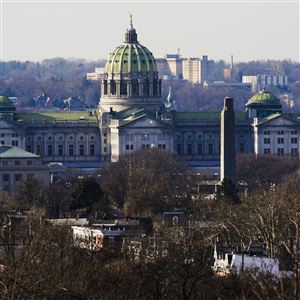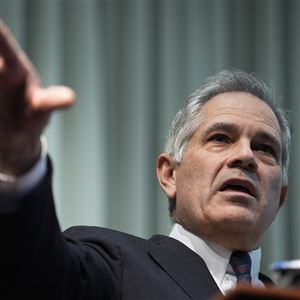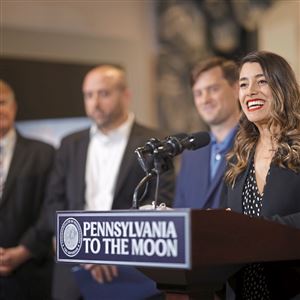Pennsylvania spent nearly $1 million holding special elections last year — about half of it in Allegheny County — and while complaints persist about disruptiveness, cost, and candidate-choosing methods, their profile has never been higher.
That’s because special elections decided control of the Pennsylvania House on three different occasions in 2023. It will happen again on Feb. 13, when voters in a portion of Bucks County make their choice to fill the vacant 140th District seat, and in the process break the current 101-101 tie in the House.
Big-time political interest will focus on the actual contest between Republican Candace Cabanas and Democrat Jim Prokopiak because the majority party in the House controls how the chamber runs.
But for Kelly Gale, acting director of elections in Bucks County, the focus will be on carrying out a third election in 2024, shoehorned onto the calendar before the April 23 primary, which will be followed by the protracted intensity of the runup to the Nov. 5 presidential election. Ms. Gale said 33 precincts would operate on Feb. 13, with the work day starting around 6 a.m., extra help coming from 30 per-diem temporary employees, and an estimated cost of $75,000 to $100,000.
This will happen even as Bucks and other counties prepare for the primary. Feb. 13 is the final day for candidates to file nominating petitions with the state.
“Working in elections, you get used to the curve balls,” Ms. Gale said of the special election. “It is nothing we are not already used to.”
When a lawmaker resigns, dies, or is removed from office, state law calls for the presiding officer in the House or Senate to act within 10 days to schedule a special election to fill the seat, using a prescribed timetable. Pennsylvania is one of 25 states that use special elections to fill vacancies. According to the National Conference of State Legislatures, the other 25 use appointments.
Counties run elections, and it is their staffs that bear the brunt of the extra work.
“They end up interrupting the flow of those other elections,” said Thad Hall, director of elections in Mercer County and president of the Western Pennsylvania Election Personnel Association. “It is, literally, another election. If I treat it as any less important, I undermine the county and the election.”
The statute-driven process is engrained among state-level politicians. There have been 17 special elections in the last three years — 14 triggered by resignations and three by deaths — and with House control being up for grabs, they have made headlines.
“There are always specials and there are doubts over when they should be held,” said Rep. Tim Briggs, D-Montgomery. “More times than not, people don’t pay attention because it is not changing the balance of the Legislature.”
Candidates for the special elections are picked, rather quickly, by local party officials. That disturbs some observers. Jack Treadway, professor emeritus of political science at Kutztown University of Pennsylvania, said local brokers savor that power.
“I don’t think we are ever going to have appointments here because the parties are so strong,” Mr. Treadway said.
The most vocal critic in Harrisburg might be state Rep. Chris Rabb, a Democrat. In a span of 30-plus years before Mr. Rabb’s 2016 election, every politician who held the 200th House District seat, which is mostly in Philadelphia, originally won it via special election.
“Ward leaders get together behind closed doors and say, ‘This is our guy.’ It is done in darkness. There is no transparency,” Mr. Rabb said.
He has filed a bill that he says would make special elections nonpartisan and more accessible to candidates and voters. The bill is awaiting action in the House State Government Committee.
Special elections scheduled for the same days as the spring primary or November elections generate few if any extra costs. That isn’t always possible, however.
Responding to a public records request, the Department of State gave reimbursement data on 15 special elections statewide during the last five years that did not line up with traditional election days.
The data showed counties spent $962,000 on special elections last year and more than $2 million in the last five years. The state reimburses counties. But John Merchlinsky, chairman of the Northumberland County Democratic Committee, said cost has to be considered.
“When we are fighting over education funding in Pennsylvania, that money could be better spent on education initiatives,” he said.
The 2023 figure includes $483,000 for Allegheny special elections. The county has had six in the last two years.
Sam DeMarco, chairman of the Allegheny County Republican Committee, said costs could be cut by preventing people from running for two offices at the same time. That would eliminate some of the resignations in the Legislature.
“Pick the office you are seeking. Otherwise, it is disrespectful to the people you represent,” Mr. DeMarco said.
A little-discussed detrimental effect of special elections, Mr. DeMarco said, is how they indirectly limit updates to voters lists. Federal law, he said, bars removing people from voter lists for a certain period of time near an election.
Couple that with the fact Allegheny County logs more than 15,000 deaths a year and about 126,000 real estate transactions, Mr. DeMarco said, and it becomes difficult to have a clean voter list.
“It requires regular, orderly, what they call voter list maintenance,” Mr. DeMarco said. “Our folks aren’t able to do this when we have all these special elections.”
Republican Rep. Brad Roae of Crawford County, the minority leader of the State Government Committee, said the current special election system is effective because it gives a district new representation fairly quickly.
But he, too, doesn’t think people should be allowed to run for two offices at once. Mr. Roae said that if a two-office candidate wins both and has to vacate his or her legislative seat, that person should be compelled to pay for the cost of the special election.
‘These are sprints’
For now, the 140th House District is going to get a lot of attention until Feb. 13. Mr. Prokopiak, the Democratic candidate, is a school board member and previously was a township supervisor and hence has election experience.
“Typically, elections are marathons. These are sprints. Usually, you have a lot longer to talk to voters,” he said of special elections. The first hurdle, he said, is getting people to know there is a special election and “having people come out in the middle of February.”
Ms. Cabanas, the Republican, said it feels a little like an information campaign about the special election. “As I am knocking on doors, a lot of people aren’t even aware there is one,” she said.
Tim Benyo, chief clerk for the Lehigh County board of elections, had a note of sympathy in his voice when he spoke of his Bucks County peers: “It stinks, because it is time to get ready for the primary.”
Correction, posted Jan. 25, 2024: The party affiliations of Candace Cabanas and Jim Prokopiak were incorrect in an earlier version of this story.
Ford Turner: fturner@post-gazette.com
First Published: January 25, 2024, 10:30 a.m.
Updated: January 26, 2024, 3:07 a.m.
